Local Domestic Violence Intervention Asks for Support April 24th
- 04/04/2019 03:57 AM (update 04/10/2023 11:09 PM)
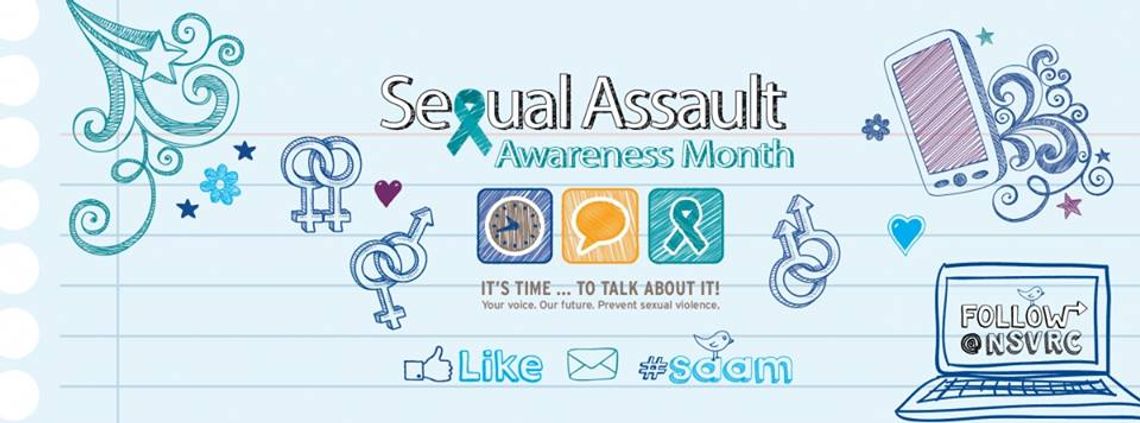
by Leanna Lehman -- April showers bring May flowers. And teal ribbons. And Denim Day. Communities around the nation are holding events this month to promote Sexual Abuse Awareness and Fallon is no exception. Wednesday, April 24th is Denim Day and the local DVI would like to see a denim-clad community.
Domestic Violence Intervention, DVI, works in the Fallon community to provide services and support to local victims of domestic and sexual violence. Victims of both genders face harsh stigmas and often find it difficult to privately share about being abused or assaulted, let alone report their abuse.
Even in our modern culture it can seem virtually impossible to seek outside help and support. “Many victims don’t want to self-identify,” according to Karen Moessner, Fallon DVI director. “Sometimes this is something that is kept hidden for a very long time.”
In spite of the recent push through the #metoo culture, an effort to “attempt to demonstrate the widespread prevalence of sexual assault and harassment”, many are not ready to speak out about their experiences. “When victims are just out of an abusive or sexually violent situation, most victims can’t really even share their story,” explains Moessner.
According to the latest statistics, someone is sexually assaulted every two minutes in the U.S. Sexual Assault Awareness Month, SAAM, officially started in 2001. However, the roots of the movement began in the 1940’s and ’50s as America underwent radical social change. The civil rights movement often intersected with race-based and gender-based violence and social activism for women continued to gain ground as awareness increased. In 1993, The Violence Against Women Act was passed and within the decade, several organizations were created to improve awareness and prevention efforts.
It is an unfortunate reality that nearly every adult in America has been personally affected by sexual violence in some way. Either first-hand as a victim, a family member, a friend, an acquaintance or even a coworker.
According to NCEDSV, the Nevada Coalition to End Domestic and Sexual Violence, sexual violence encompasses a “wide variety of crimes and actions that constitute unwanted or age-inappropriate sexual activity that can be physical or non-physical.” It can take many different forms or be defined in different ways and can include assault, partner sexual violence, dating violence, child sexual abuse, drug-facilitated assault, elder abuse, military sexual trauma, prison rape, and more.
Although there are many different types of sexual assault and situations, one message must be made clear, “It is not the victim's fault,” said Moessner.
With a 24-hour hotline, crisis intervention, emergency shelter, extensive referral services, peer counseling, support groups, assistance in court, DVI is critical to local area victims of domestic and sexual violence.
Denim Day is derived from a 1998 Supreme Court decision overturning a rape verdict, based on the fact that the victim’s blue jeans were too tight. According to the Chief Judge, “because the victim wore very, very tight jeans, she had to help him remove them, and by removing the jeans it was no longer rape but consensual sex.” Enraged by the verdict, women in the Italian parliament protested immediately and began wearing jeans to work. As a result, people all over the world were outraged and wearing jeans became an international symbol of protest against the destructive social attitudes about sexual assault.
While many victims are getting help, they might not yet be ready to publicly march or rally in support of DVI and SAAM. However, friends and family can offer support in tangible ways. DVI is always seeking volunteers, financial support, and assistance for victims. Additionally, with increased awareness, community members can help victims connect with DVI and other support organizations so they don’t have to face their trauma alone.
If you or someone you know is being abused or in crisis, DVI is available to help at 775-423-1313 or on the emergency hotline at 775-427-1500 24/7. There is a website: https://www.ncedsv.org/resources/ and also a Facebook page at https://www.facebook.com/dvi89406/
Support local, independent news – contribute to The Fallon Post, your non-profit (501c3) online news source for all things Fallon.
Never miss the local news -- read more on The Fallon Post home page.

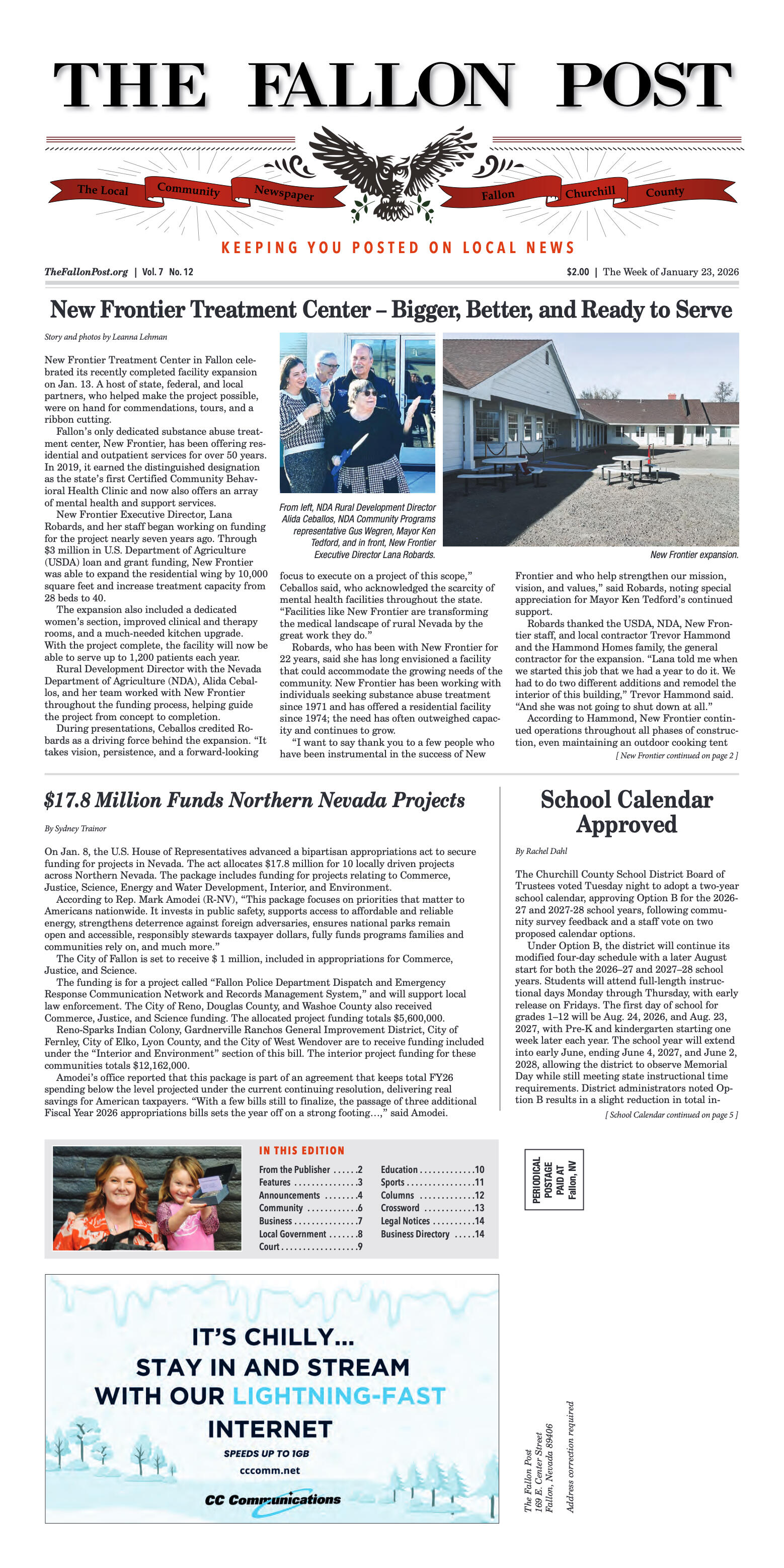
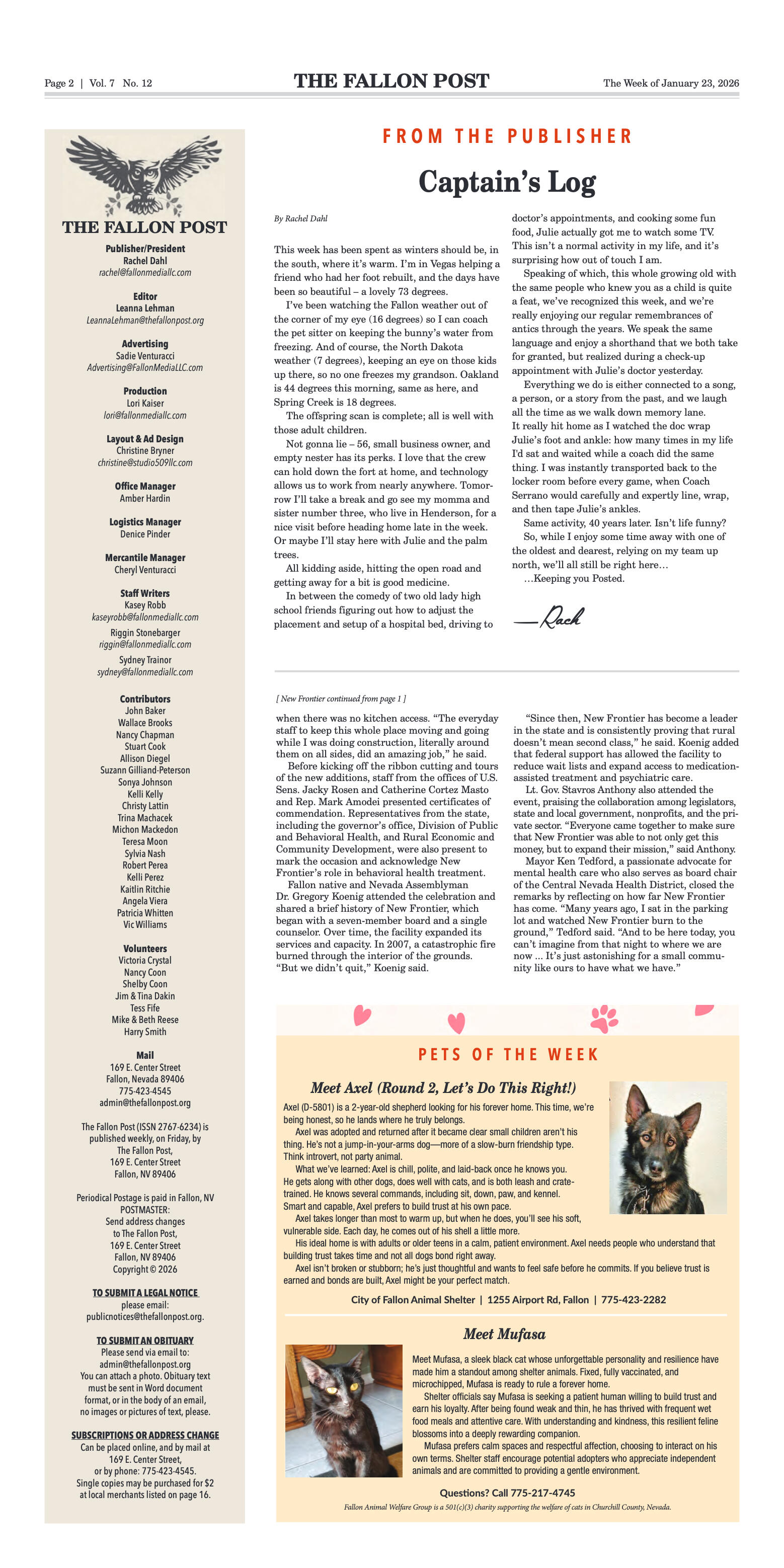
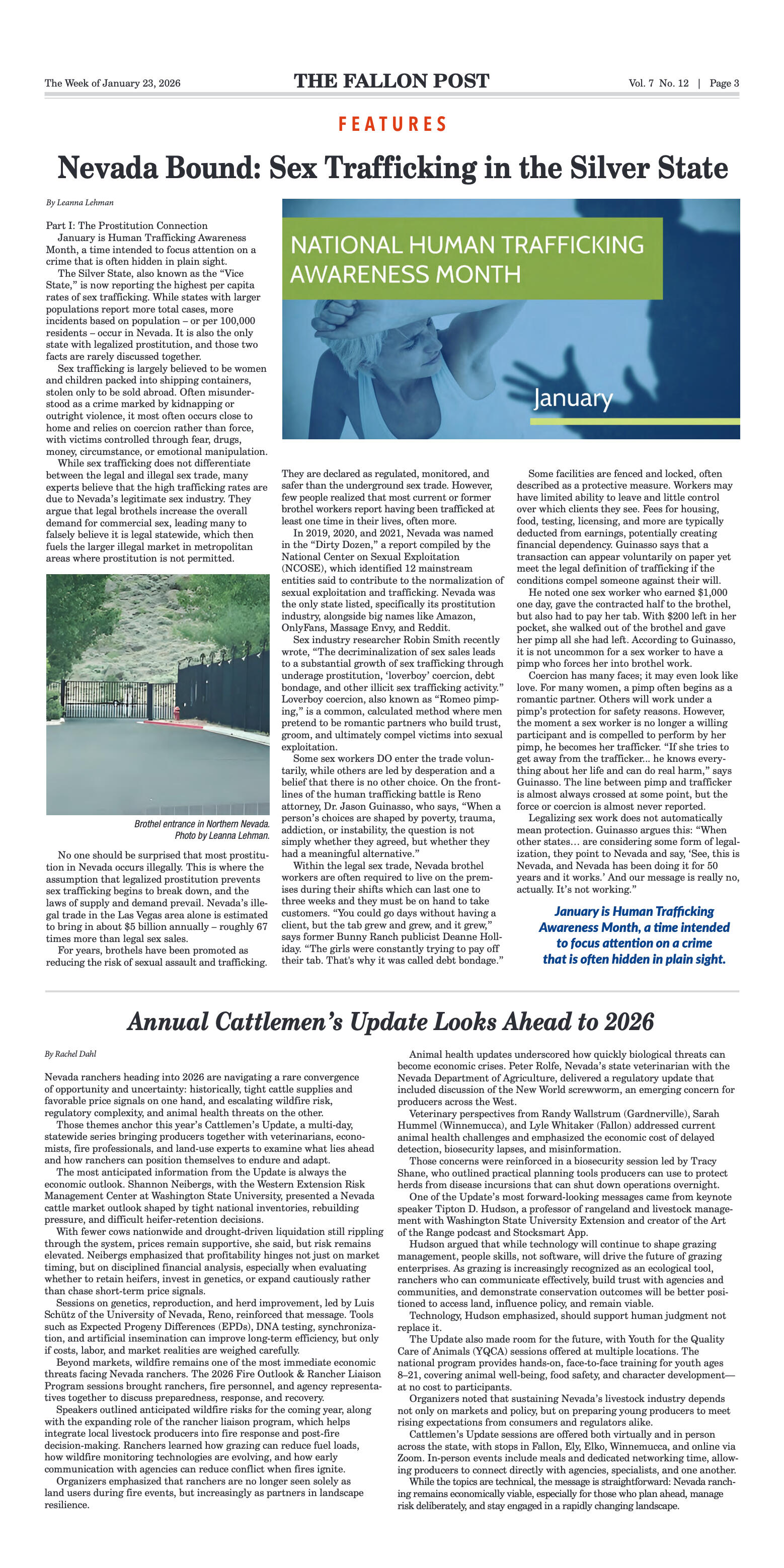
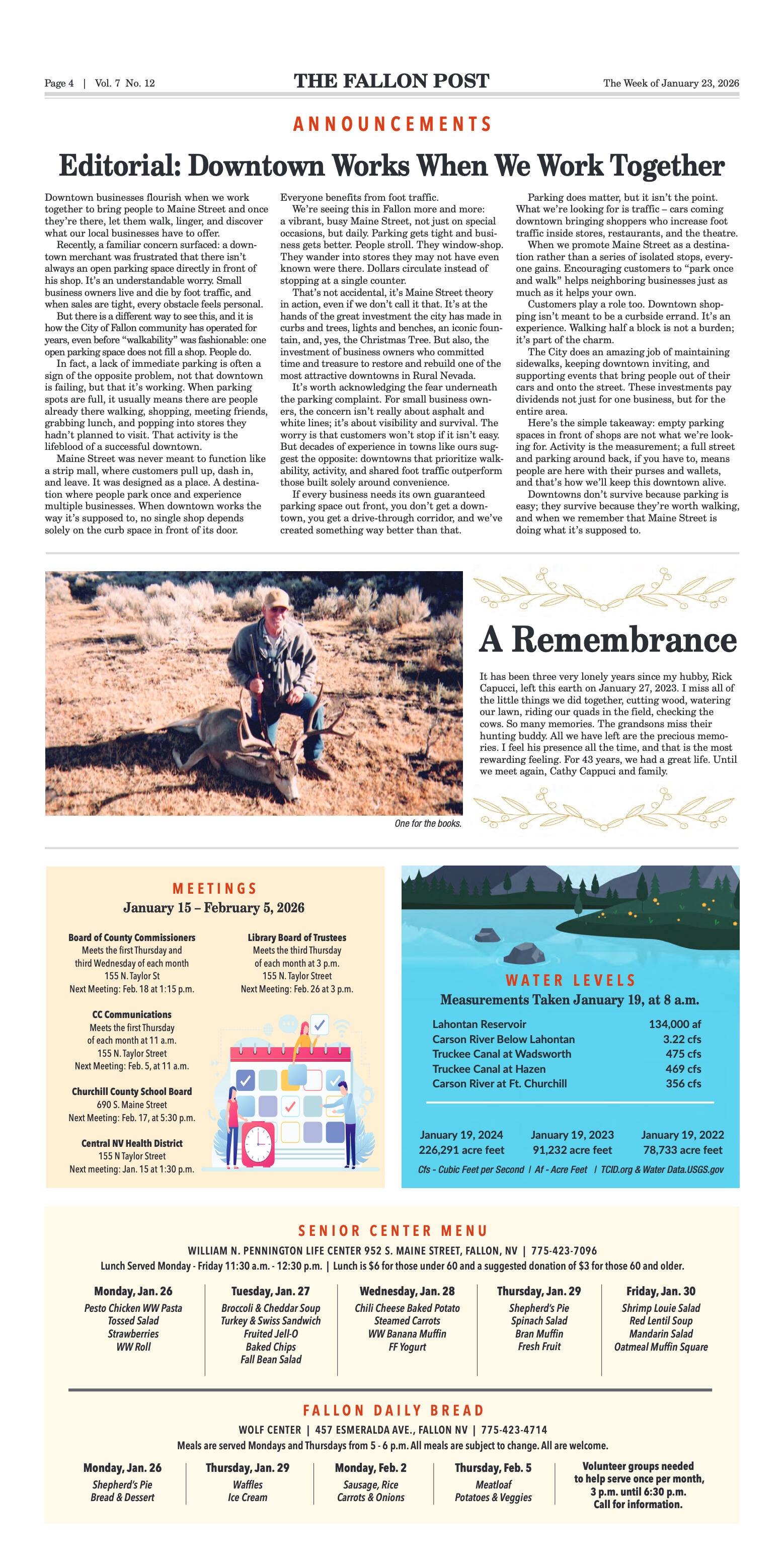
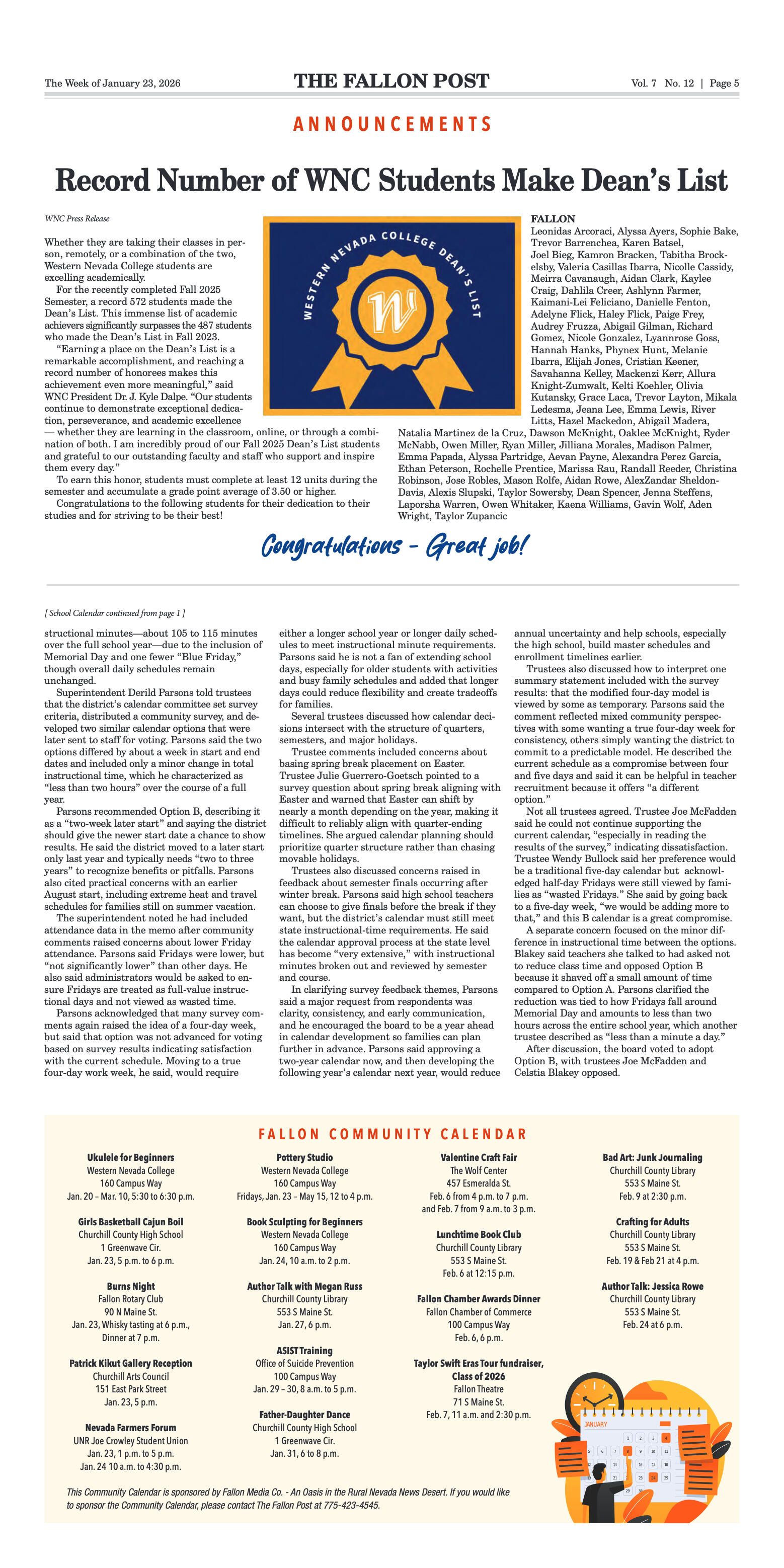
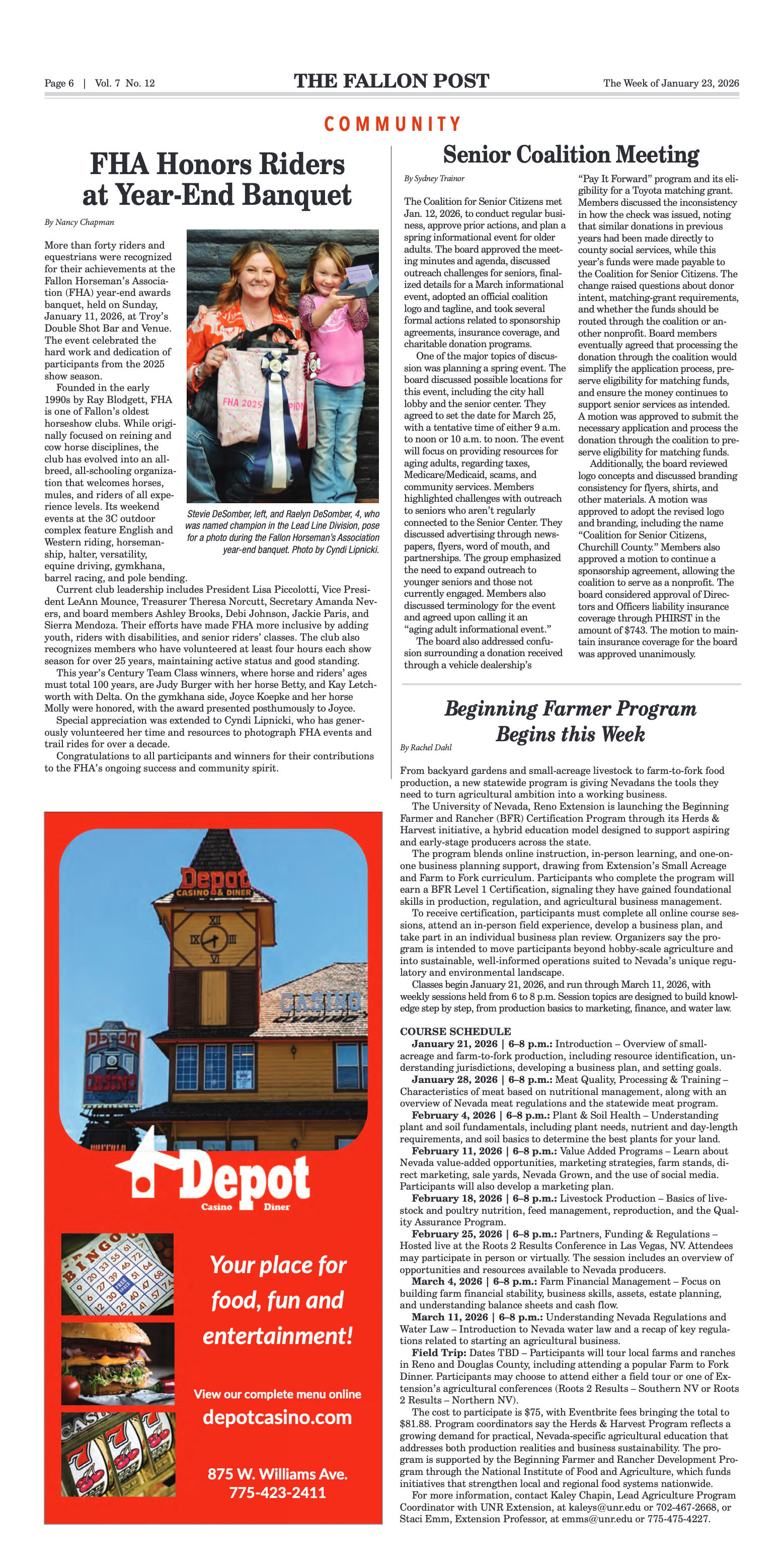
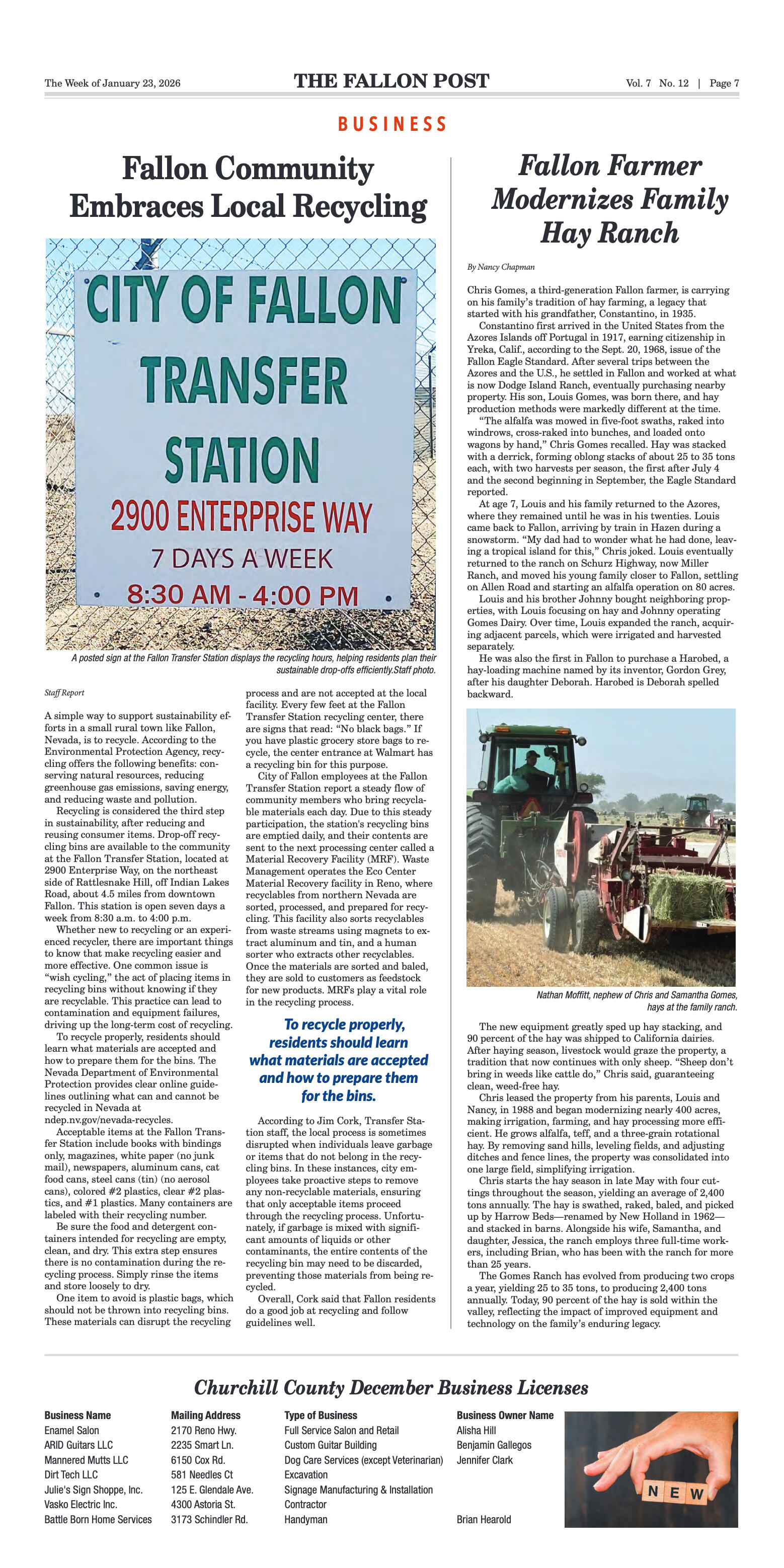
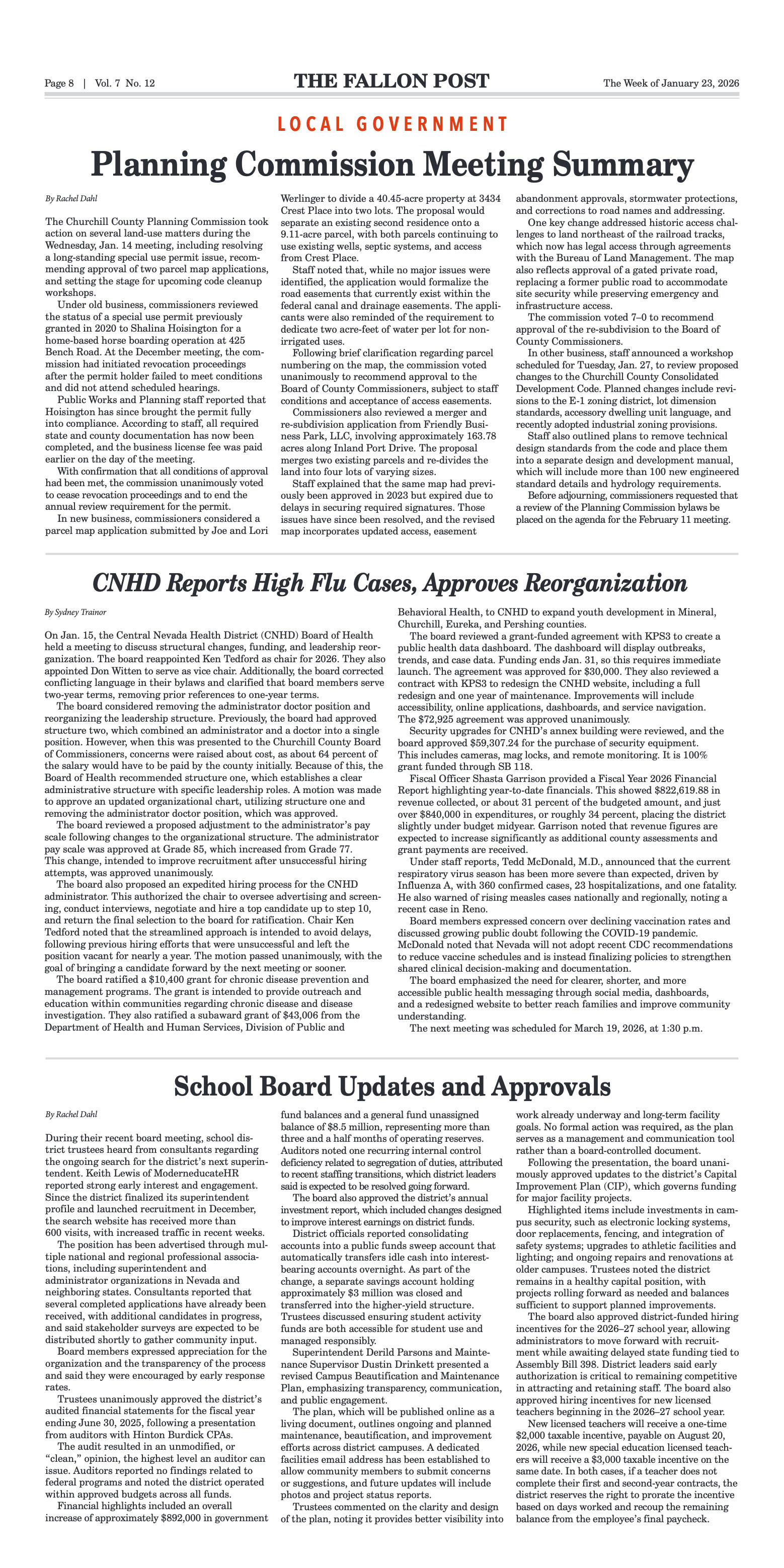
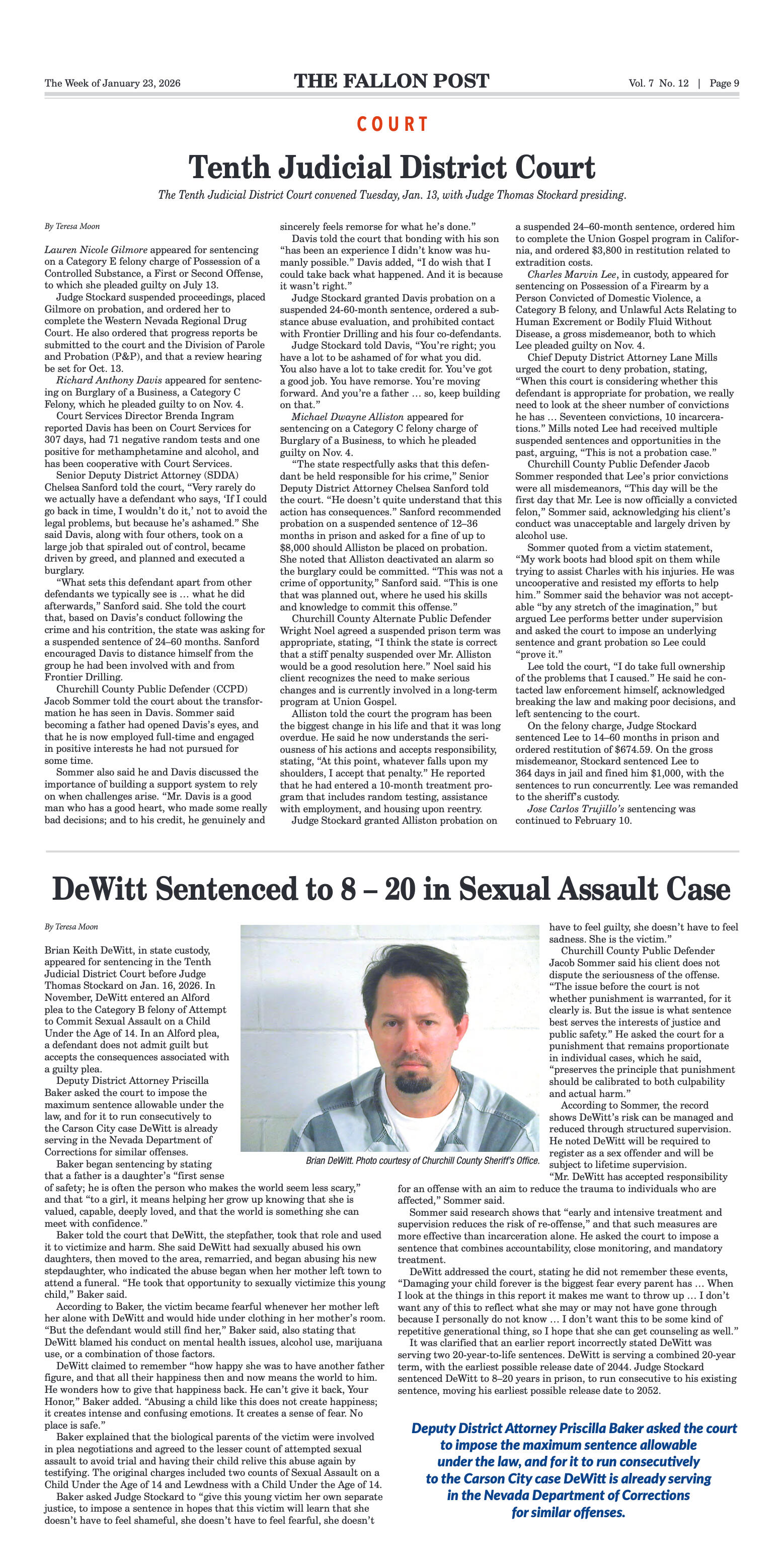
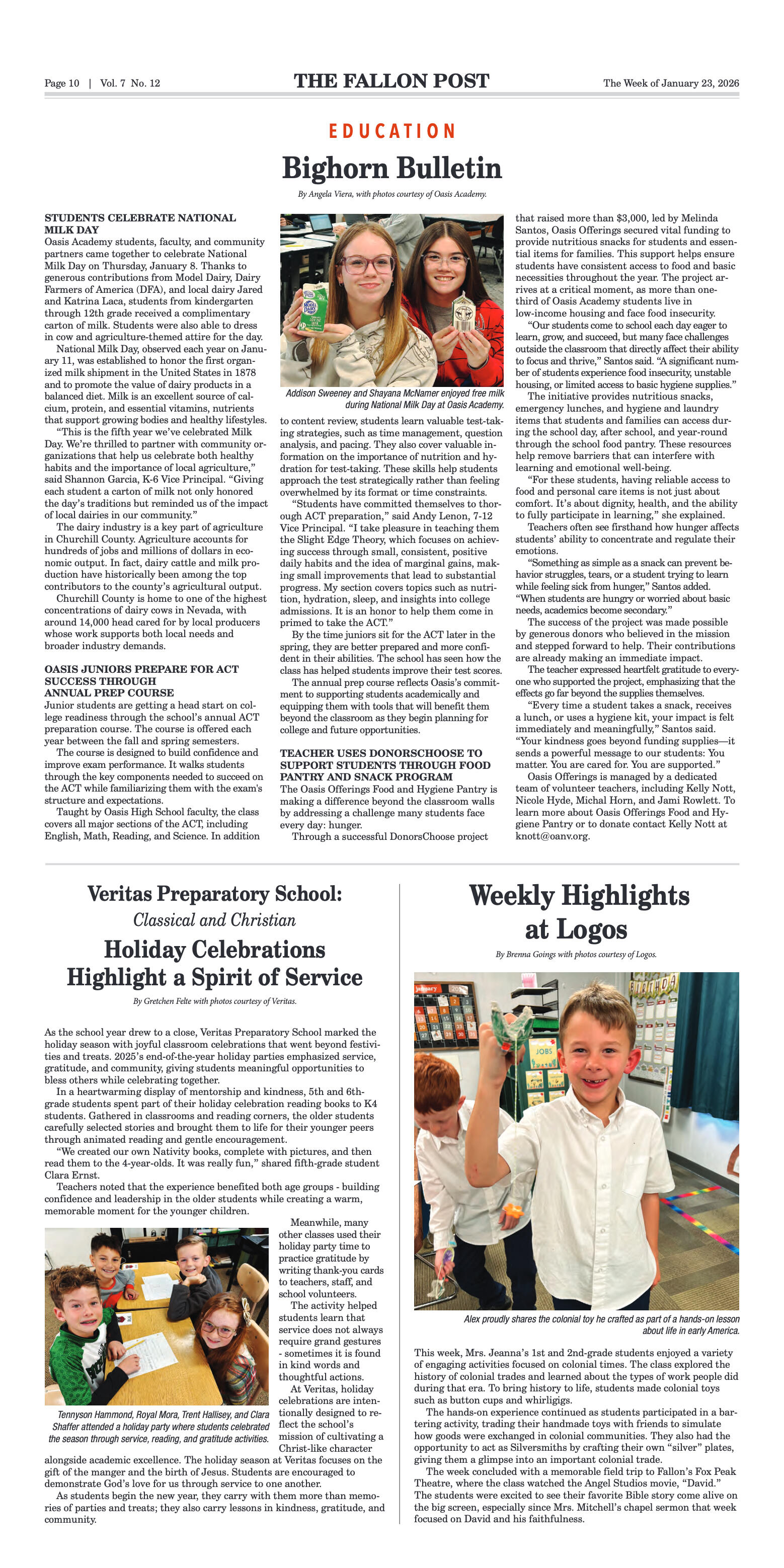
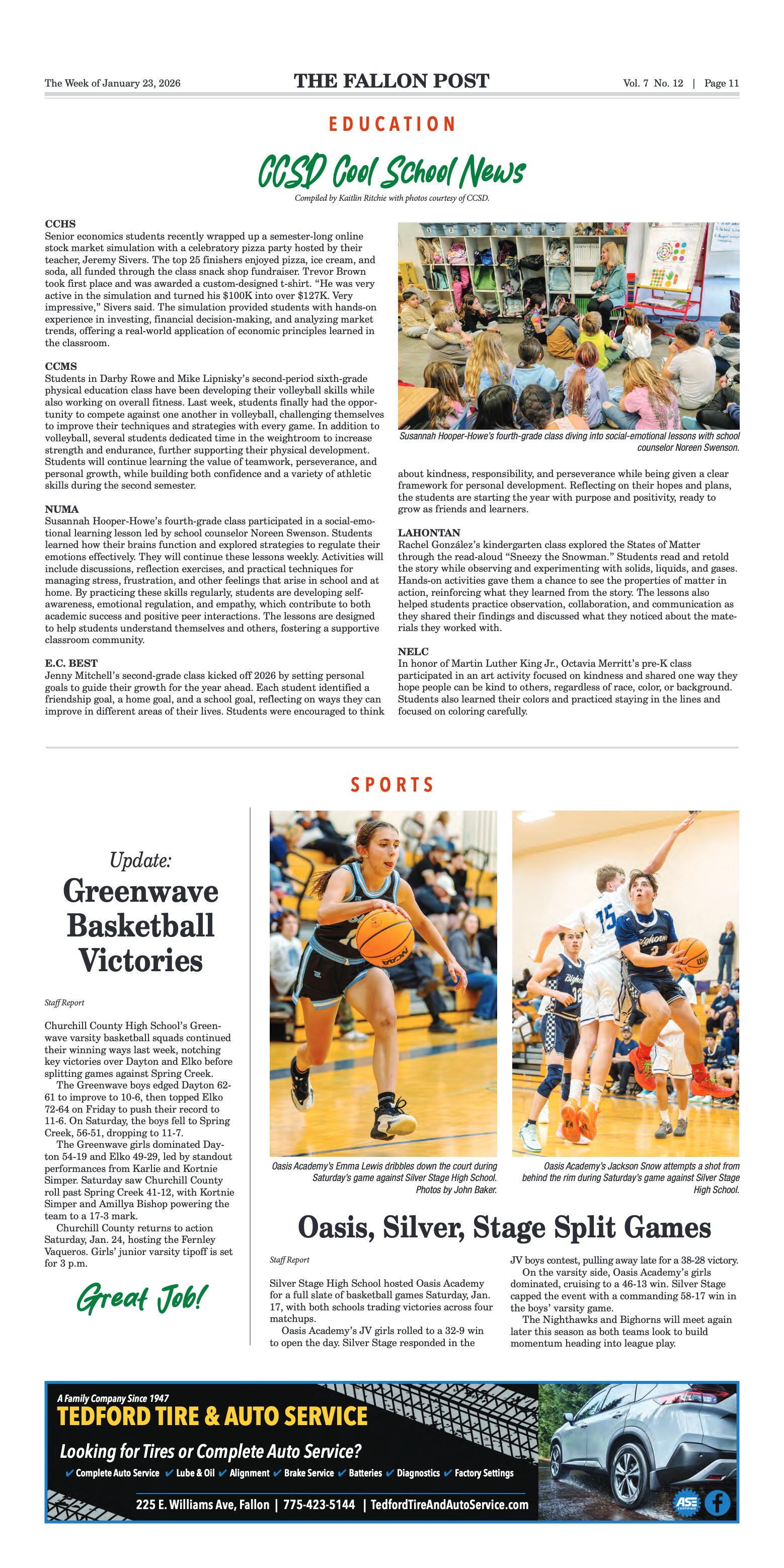
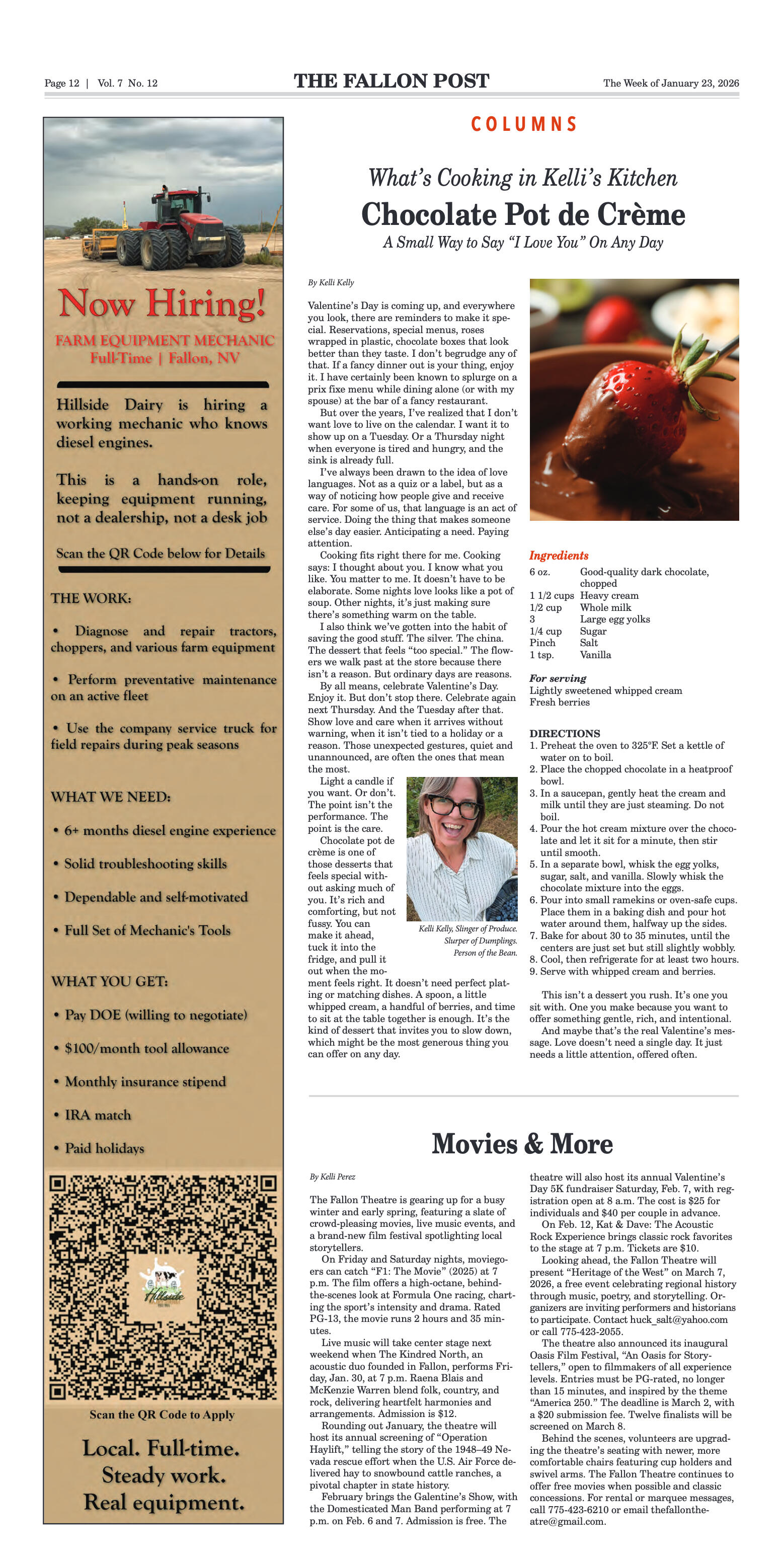
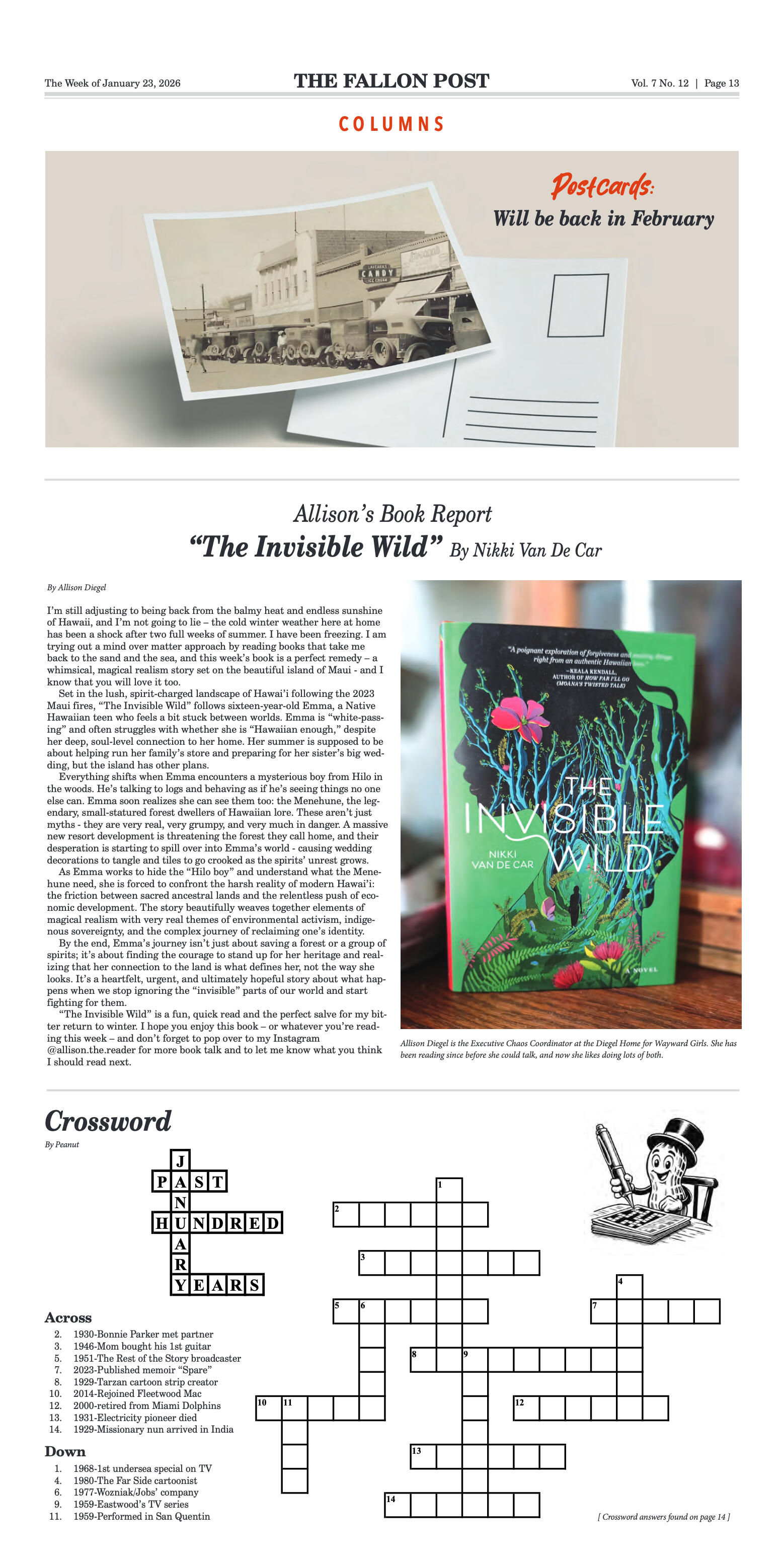
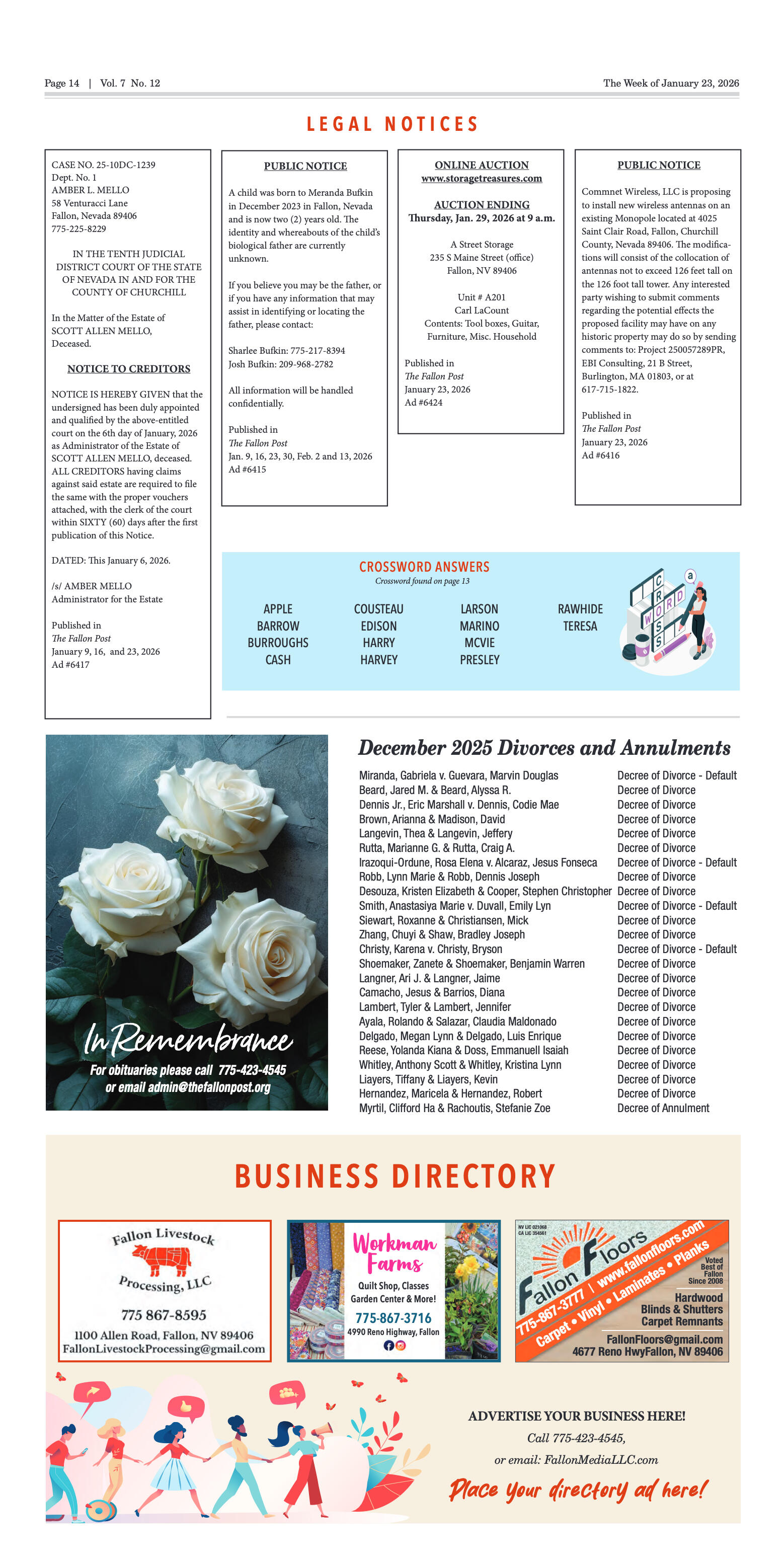
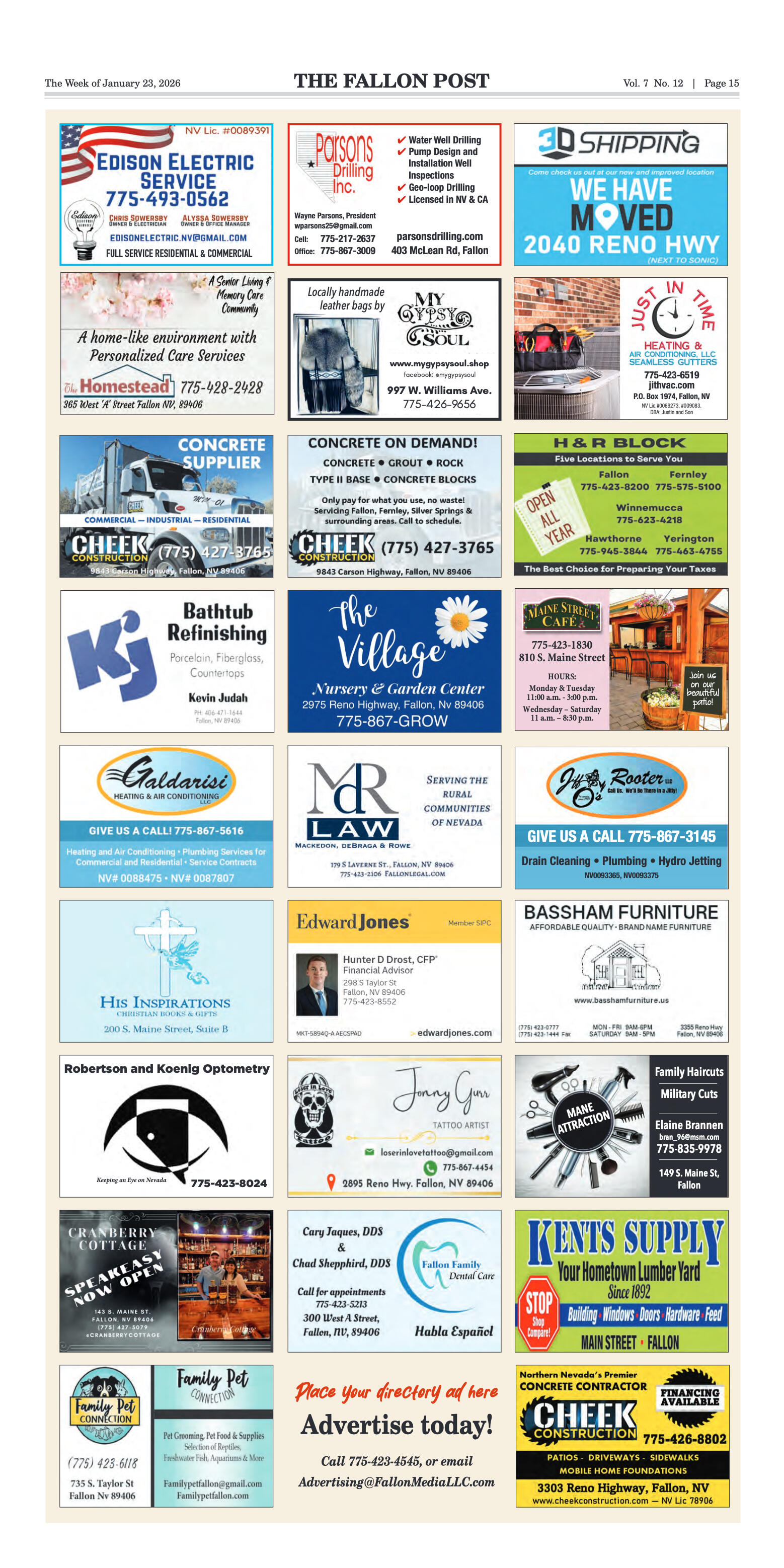
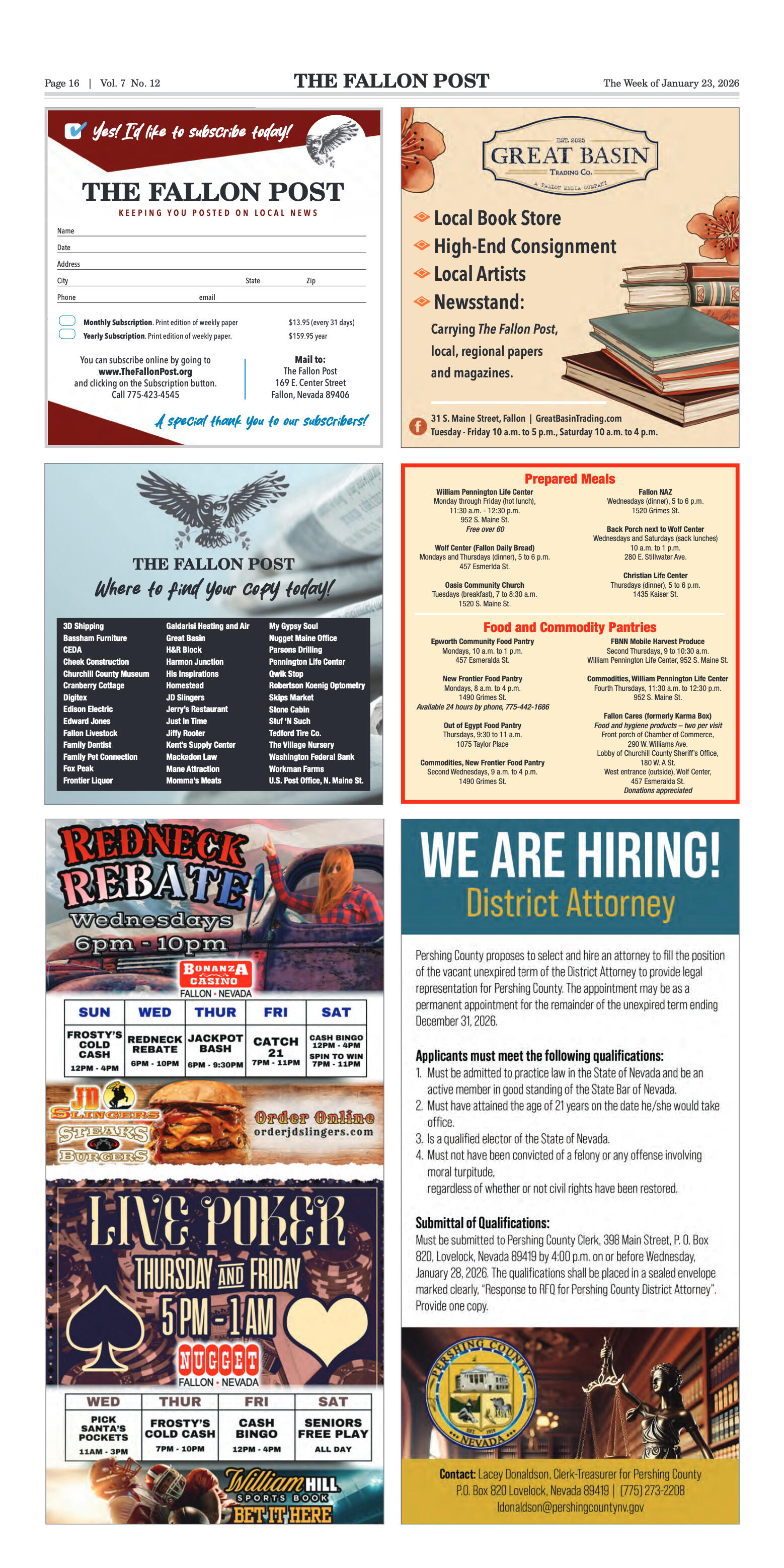
















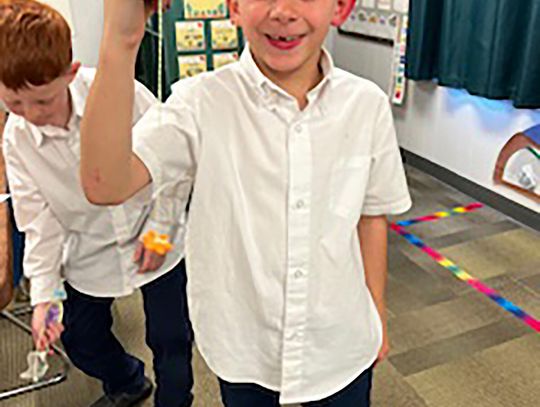
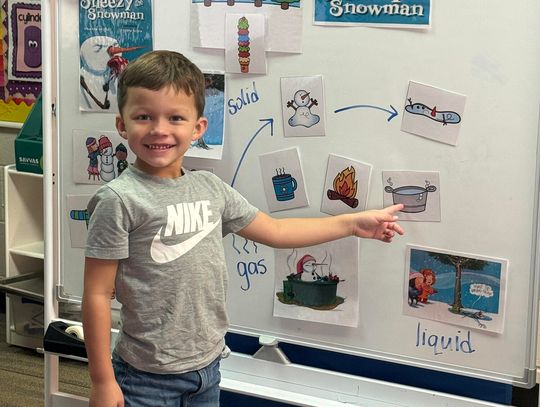

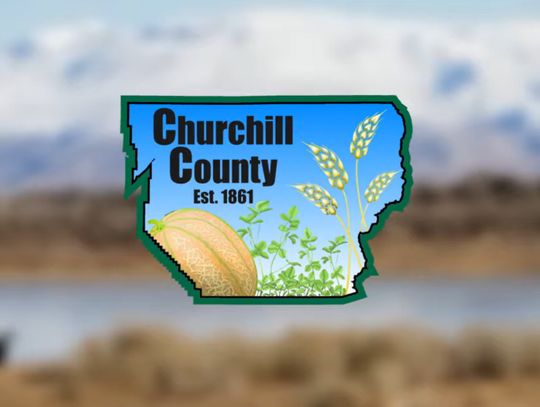



Comment
Comments